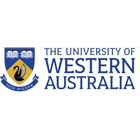Master of Forensic Anthropology
Master of Forensic Anthropology
This course enables you to undertake advanced studies in forensic anthropology, while developing an in-depth knowledge of the human skeleton. You’ll gain a practical understanding of the scientist’s role within the Australian legal system, and have the opportunity to explore various anthropological techniques using traditional and digital modalities. Course structure…
Categories
COURSE DESCRIPTION
This course enables you to undertake advanced studies in forensic anthropology, while developing an in-depth knowledge of the human skeleton. You’ll gain a practical understanding of the scientist’s role within the Australian legal system, and have the opportunity to explore various anthropological techniques using traditional and digital modalities.
Course structure
Postgraduate coursework degrees and combined (coursework and research) degrees comprise a number of units.
Why study this course
To achieve necessary knowledge and training towards employment in mainstream forensics
To gain the ability to prepare and present professional reports for the judiciary
Learn how specialised forensic practitioners work collaboratively in response to criminal and other activity (e.g. homicide; genocide; DVI; terrorism)
You’ll learn to
specialise in a particular area of interest, gaining practical experience in an independent scientific study through the completion of a project of direct relevance to forensic anthropology
participate in moot practical excavations focusing on the recovery of forensic evidence of past human activities
work in a laboratory environment specifically designed to accommodate forensic anthropological requirements for professional practice
explore the margins of forensic anthropology through an independent literature-based and professional research project
Top skills you’ll develop
Ability to interpret post-mortem modifications to human remains (forensic taphonomy).
Search and recovery of human remains using forensic archaeological protocols in a variety of depositional contexts (surface; sub-surface).
Understanding of forensic practice as it relates to judicial requirements in Australia (specifically) and internationally (broadly).
Ability to prepare and present professional reports for the judiciary.
Ability to analyse physical human remains (skeletal and dental materials).
Career Pathways
Many students who choose this program are likely to do so to achieve the necessary osteological/forensic knowledge to apply for PhD study upon course completion. Others are seeking employment in mainstream forensics. To that end, graduates of this course may find employment opportunities as a forensic scientist generally (or anthropologist specifically) in both the public and private sector, including areas such as the forensic science industry, science-based industries, teaching, government agencies, state and federal police, ASIO, correctional services; and community services. Other possible career options include working as a freelance forensic anthropologist, or employment with a private forensic company, a national institution, or the United Nations.
Further Study
Students completing this degree may have the option to pursue further studies in research.
REQUIREMENTS
(1) To be considered for admission to this course an applicant must have—(a) a Bachelor’s degree, or an equivalent qualification, as recognised by UWA; and(b) the equivalent of a UWA weighted average mark of at least 50 per cent; and(c) successfully completed prior study in a field relevant to Forensic Anthropology; or(2) completed a Graduate Certificate in Forensic Anthropology or Graduate Diploma in Forensic Anthropology at UWA.
English language requirements:
TOEFL (paper-based): 570 with a Test of Written English (TWE) of no less than 4.5
IBT TOEFL (Internet-based test score): 82 with 22 for writing, 20 for speaking, 20 for listening, and 18 for reading
IELTS (Academic): 6.5 (no band lower than 6.0)
Cambridge Certificate of Proficiency in English: C pass
Cambridge Certificate in Advanced English: B grade
Pearson Test of English (PTE) (Academic): Overall score of 64 with a minimum score of 64 in the Reading and Writing sections, 59 in the Speaking section and 54 in the Listening section
EDUCATIONAL INSTITUTION
The University of Western Australia (UWA) is a proud member of the Group of Eight and is the only university in Western Australia to be ranked in the world top 100 universities (QS World University Rankings 2023).UWA’s main campus is located in Perth, Western Australia and is home to more than 23,000 students. Perth is Australia’s fourth-largest city with over two million people from a variety of cultures worldwide, a strong economy and vibrant lifestyle. Perth is one of the country’s most affordable cities, the closest major Australian city to Asia, and in the same time zone as most of Asia.




